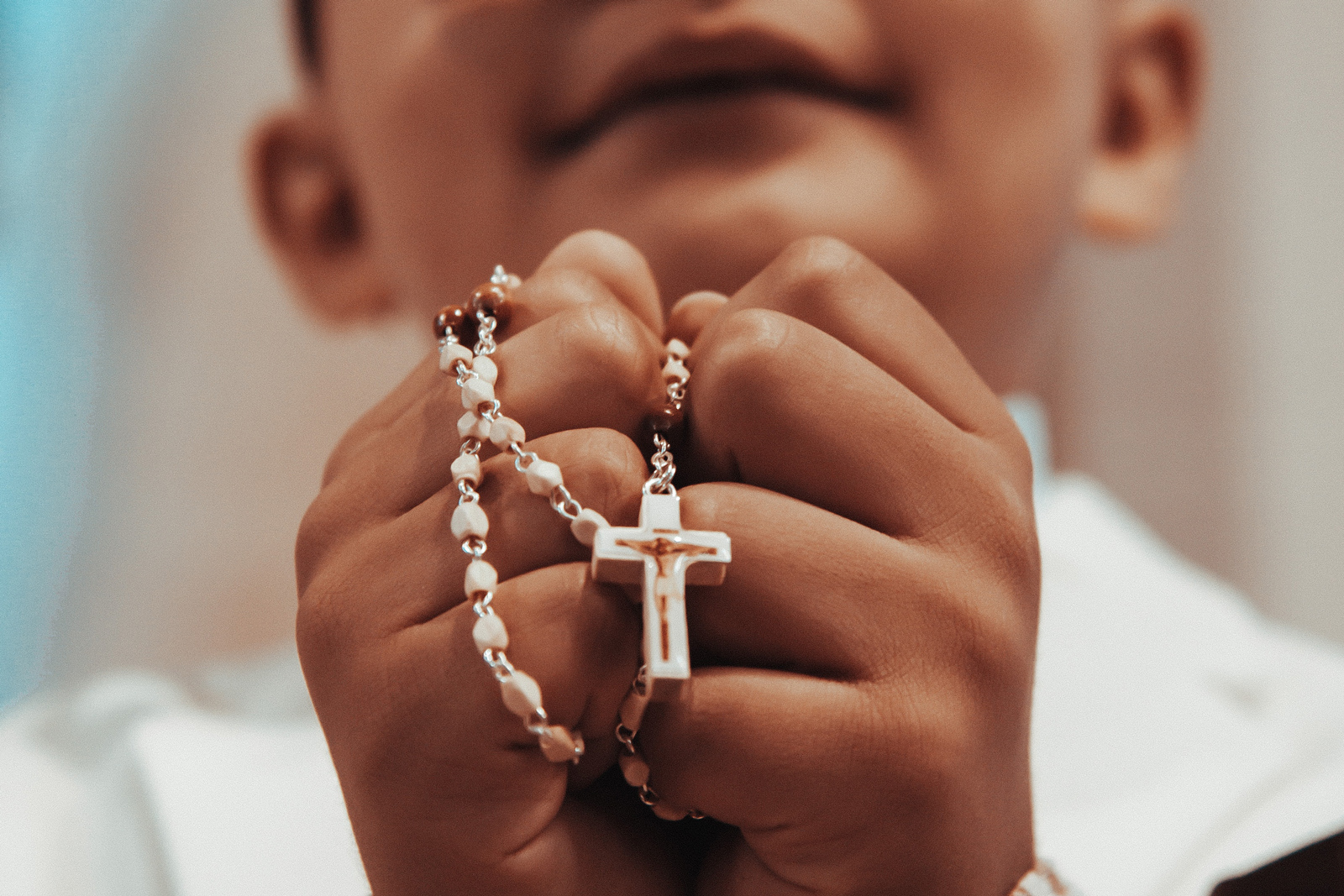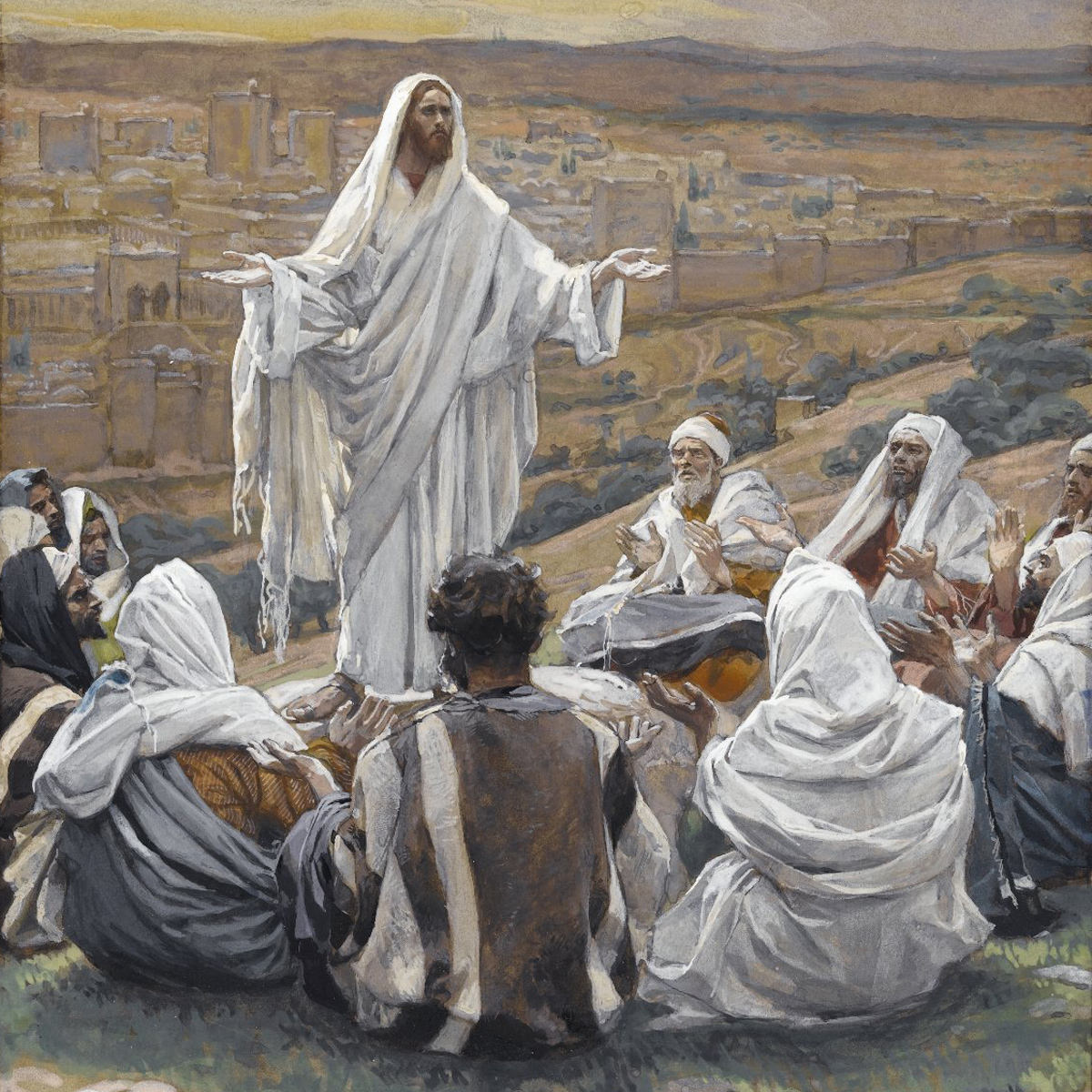It is easier for a camel to pass through the eye of a needle,
than for a rich man to enter into the kingdom of God.
– Mark 10:25; Matthew 19:24
Can a millionaire become a saint? Yes. God calls everyone to be a saint – it is probably more difficult for those who are attached to earthly things like wealth and prestige, but Katharine’s rich parents taught her to find her real treasure in the kingdom of Heaven.
Train up a child in the way he should go,
And even when he is old, he will not depart from it.
– Proverbs 22:6
Formation in Faith & Generosity
Born in Philadelphia on 26 November 1858 to the extremely wealthy investment banker Francis Anthony Drexel and his wife Hannah, Katharine lost her mother five weeks post-birth. Her aunt and uncle, Ellen and Anthony Joseph Drexel (founder of J.P. Morgan, originally Drexel, Morgan & Co.), cared for the baby – then named Catherine Mary – and her 3-year-old sister Elizabeth for two years alongside their own children, until Francis married a lady called Emma Mary Bouvier.
Catherine and Elizabeth, along with their new sister Louise, were taught as children to share their good fortune with those in need. Emma invited the poor into their home thrice a week, distributing food, clothing, shoes, medicine and rent assistance.
The Drexels paid the rent for 150 families every year, spending $30,000 per annum on their home-based charity. Many of the clothes they gave away were purchased from impoverished women living at the nearby Convent of the Good Shepherd, so the Drexels helped both the women who sewed the clothing and the families who received it.
Knowing that some widows and single women did not want to lose face in coming to them for assistance, the Drexels discreetly sought them out. Emma explained to her daughters: “Kindness may be unkind if it leaves a sting behind.”
The girls’ father spent at least half an hour in prayer every evening, quietly impressing the importance of faith upon his daughters. Their mansion had its own family chapel, with the Blessed Sacrament.
Believing that his daughters should learn about geography from travelling, instead of just maps and textbooks, Francis took his family on regular tours of the United States and Europe. Thus, the girls grew up aware of societal conditions throughout their homeland and beyond. They were also given the best education available by private tutors.
The patient and humble endurance of the cross,
whatever nature it may be, is the highest work we have to do.
– St Katharine Drexel
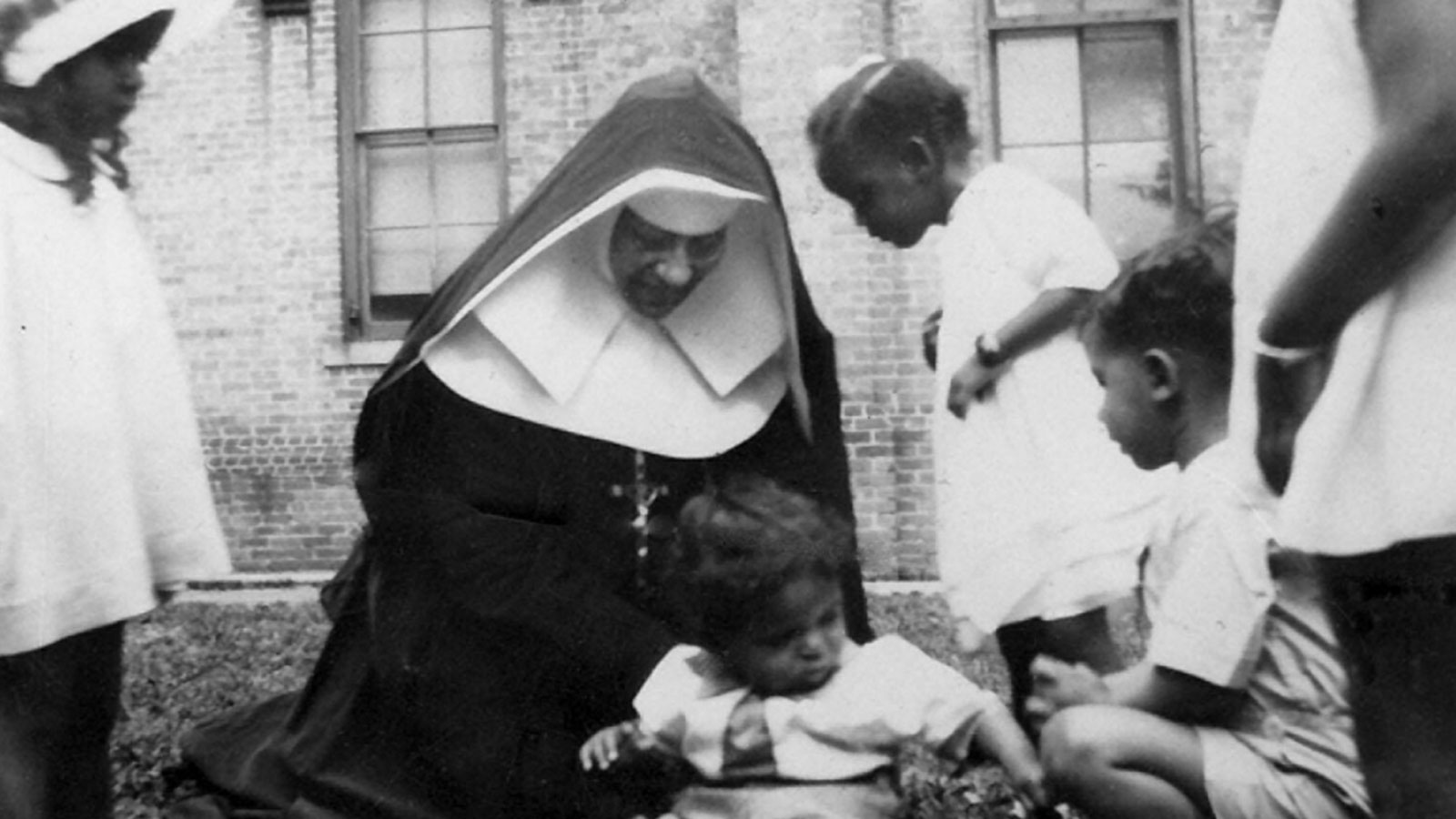
Noticing the Need
Catherine made her debut into high society in 1878. However, as she cared for her stepmother, who died of cancer after a three-year struggle, Catherine realised that money was no safeguard against illness, suffering and death.
After Emma’s death in 1883, the Drexels travelled to the Western states of America, where Catherine noticed the penury of the Native Americans. Having read about the injustices they had suffered, she felt dreadful for them. She became acquainted with the Chief of the Sioux, Red Cloud. A friend of the family, Fr James O’Connor, was appointed the apostolic vicar of Nebraska, and often sought donations from the Drexels for his pastoral ministry to the Native Americans.
Catherine also observed the ill-treatment of African Americans living in the Southern states, and felt that more priests were needed to care for them as well as the Native Americans. After her father died in 1885, Catherine and her sisters sailed to Europe, where they made a pilgrimage to Rome.
Catherine obtained an audience with Pope Leo XIII and implored him for missionary priests to staff the Native American missions of which she and her sisters were benefactors. The Pope replied, “Why not my child, yourself become a missionary?”
This surprise suggestion suffused Catherine with fresh purpose. Though she had received several marriage proposals, she decided to take up the Pope’s challenge, after consulting her spiritual director, Bishop O’Connor.
Catherine entered the Sisters of Mercy convent as a postulant in May 1889. This sent shockwaves through the upper crust of Philadelphia, with the local paper trumpeting the headline: “Miss Drexel Enters a Catholic Convent—Gives Up Seven Million.”
Go, sell everything you have and give to the poor,
and you will have treasure in heaven.
Then come, follow Me.
– Mark 10:21
A Life of Service
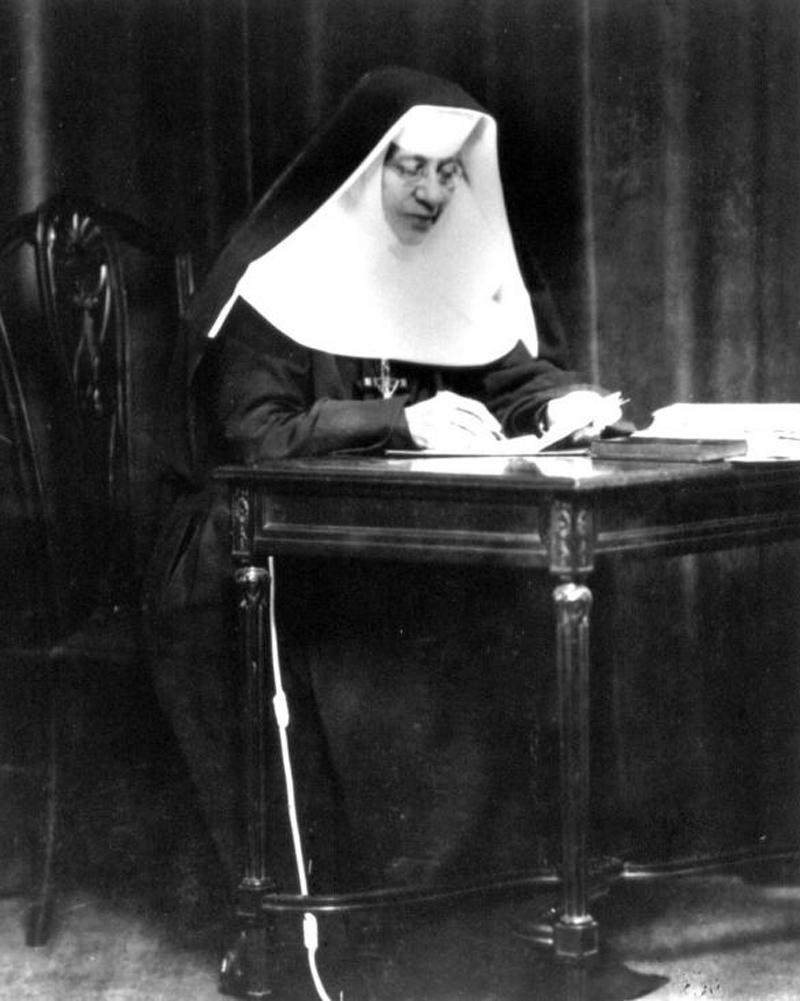
On 12 February 1891, Catherine professed her first religious vows, taking the name “Mother Katharine”. Along with thirteen other women, Mother Katharine established the Sisters of the Blessed Sacrament. Besides the three evangelical vows of poverty, chastity and obedience, they took a fourth vow, to serve the Native Americans and African Americans.
Mother Katharine’s fellow missionary educator Mother Frances Xavier Cabrini, foundress of the Missionary Sisters of the Sacred Heart of Jesus (later the first American citizen to be canonised), advised her on how to navigate the Vatican bureaucracy to have her new order’s rule approved.
While waiting for their convent to be built, the Sisters stayed in the Drexel summer holiday home. When work began on the new motherhouse in Pennsylvania, a stick of dynamite was planted nearby, indicative of the opposition Mother Katharine would face in her mission for social justice and equality. Not everyone recognised the face of God in those who looked different to themselves.
Undeterred, Mother Katharine forged ahead, founding 145 missions in 16 different states, 50 schools for African Americans, 12 schools for Native Americans, and the first Catholic college for African Americans, Xavier University of Louisiana. Her life of active service was born of her deep devotion and contemplation of the Blessed Sacrament.
All is vanity except knowing, loving and serving God.
This alone can bring peace to my soul.
– St Katharine Drexel
Against All Odds
As with many works of God in this fallen world, Mother Katharine’s mission faced vicious opposition. In 1922, the Ku Klux Klan sent a threatening letter, stating that they would tar and feather the priest in one of the Sisters’ schools and bomb his Texan church.
Faced with this death threat, the Sisters prayed. It is recorded: “Days later, a tornado came and destroyed the headquarters of the KKK, killing two of their members. The Sisters were never threatened again.”
However, the Sisters still had to contend with racist government officials in Georgia, vandalism of Xavier University in New Orleans (someone smashed all the windows), destruction by arson of a school in Virginia, and segregation laws throughout the South.
Yet, they persisted cheerfully, and when Mother Katharine died at the age of 96 on 3 March 1955, having survived two World Wars and the Great Depression, there were over 500 Sisters serving throughout the USA. On 1 October 2000, she was the second American-born saint to be canonised, by Pope John Paul II. Today, the Sisters of the Blessed Sacrament continue their work. Sadly, Xavier University recently received a bomb threat – the Sisters’ mission is still essential.
A Family Affair
Mother Katharine’s beloved Uncle Tony also founded a tertiary institution, Drexel University. Her older sister Elizabeth died in childbirth along with her baby, but before her death she established St. Francis de Sales Industrial School for orphaned boys.
Their little sister Louise married the Republican congressman Edward de Veaux Morrell, and together they built St. Emma’s Agricultural and Industrial School, a boarding school for African American boys. Building on Elizabeth’s legacy, Louise also started a home, the Drexmoor, for young men who had graduated from St. Francis’ and started work in the city. She was an early supporter of the Catholic Interracial Movement.
How much good came into the world through a single family, blessed with a solid relationship with God that guided the stewardship of their material wealth for the common good, for those who needed it most. Their profound love for God and neighbour transformed the lives of generations across their nation.
If we wish to serve God and love our neighbour well,
we must manifest our joy in the service we render to Him and them.
Let us open wide our hearts. It is joy which invites us. Press forward and fear nothing.
– St Katharine Drexel
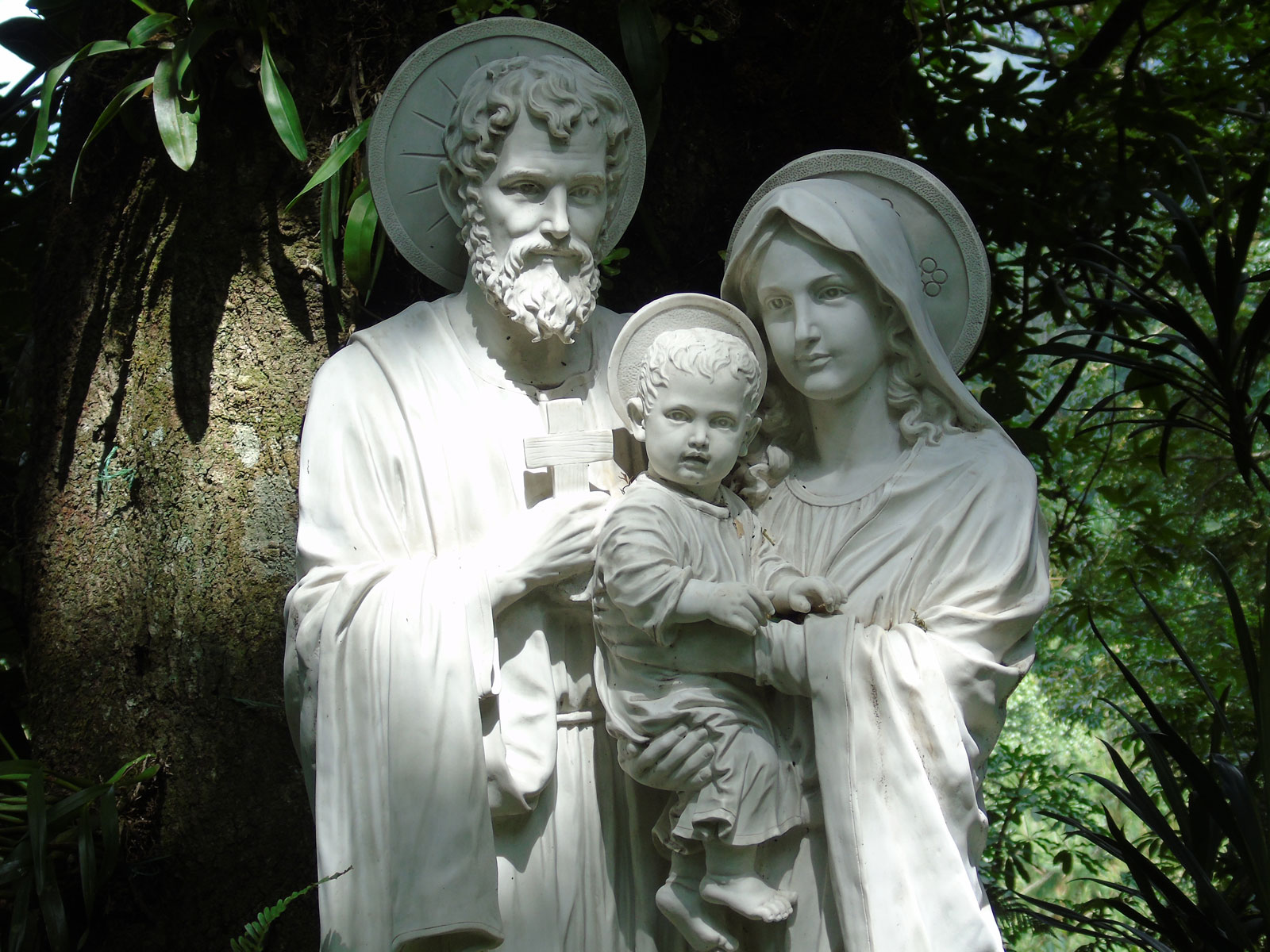

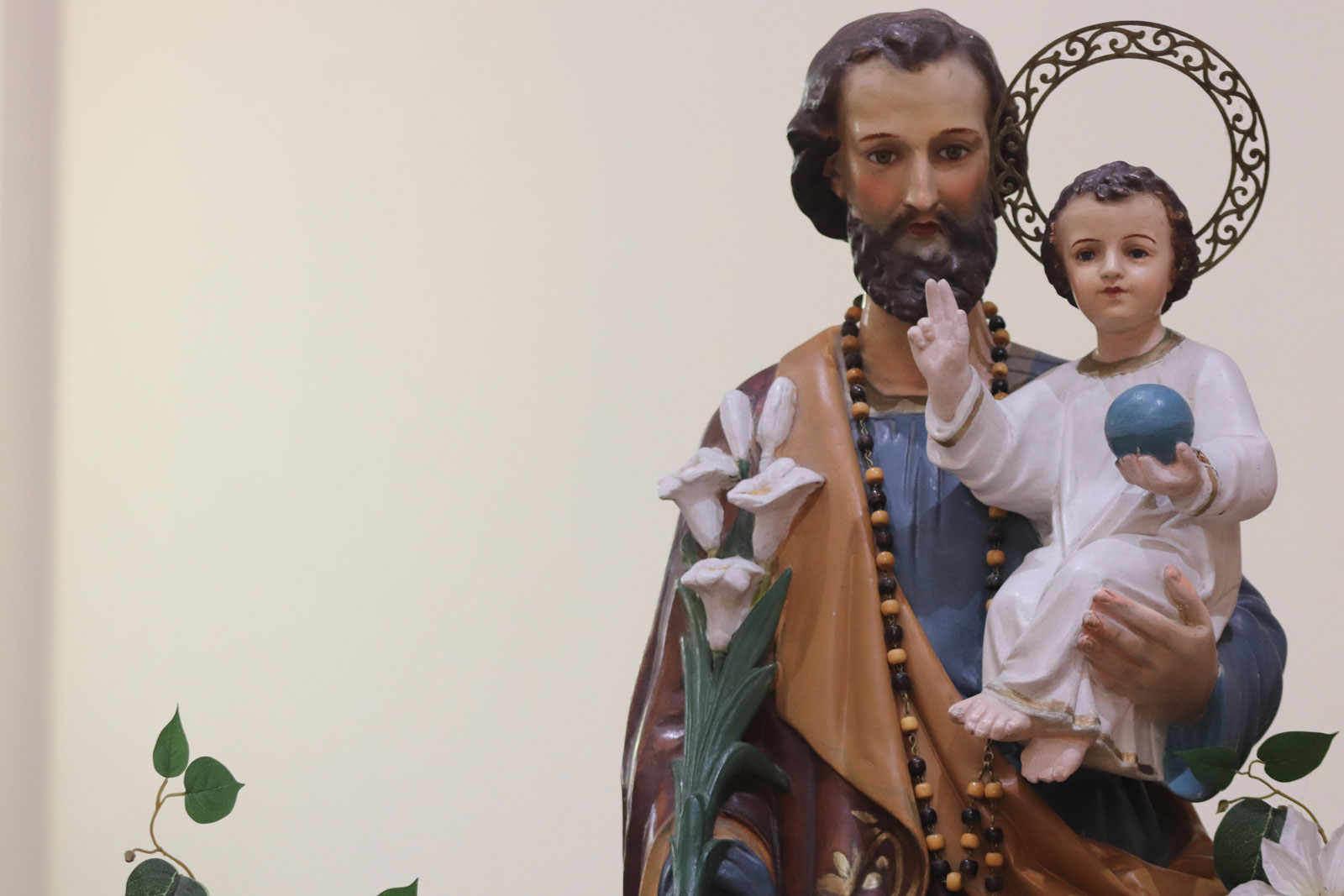
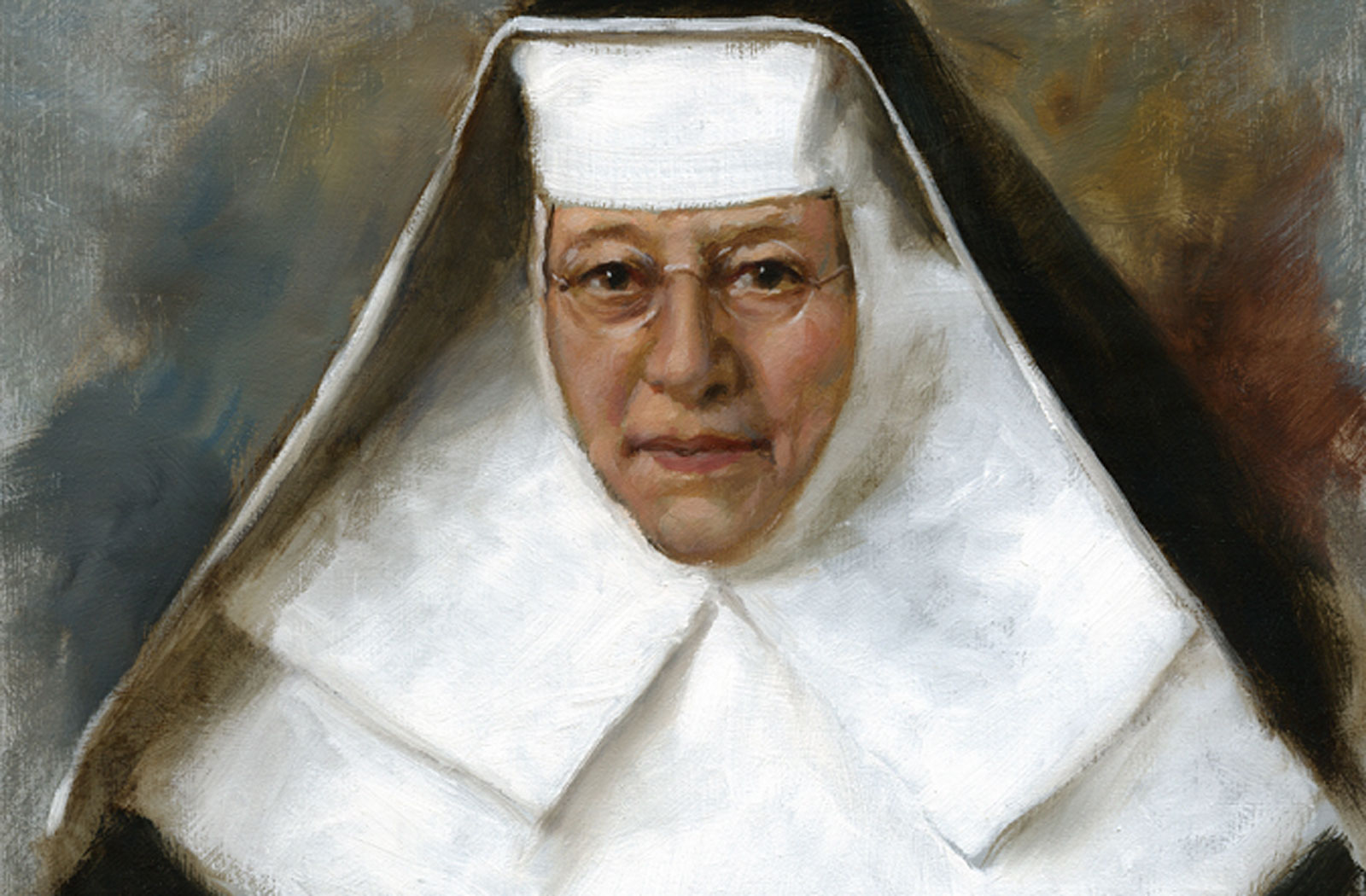




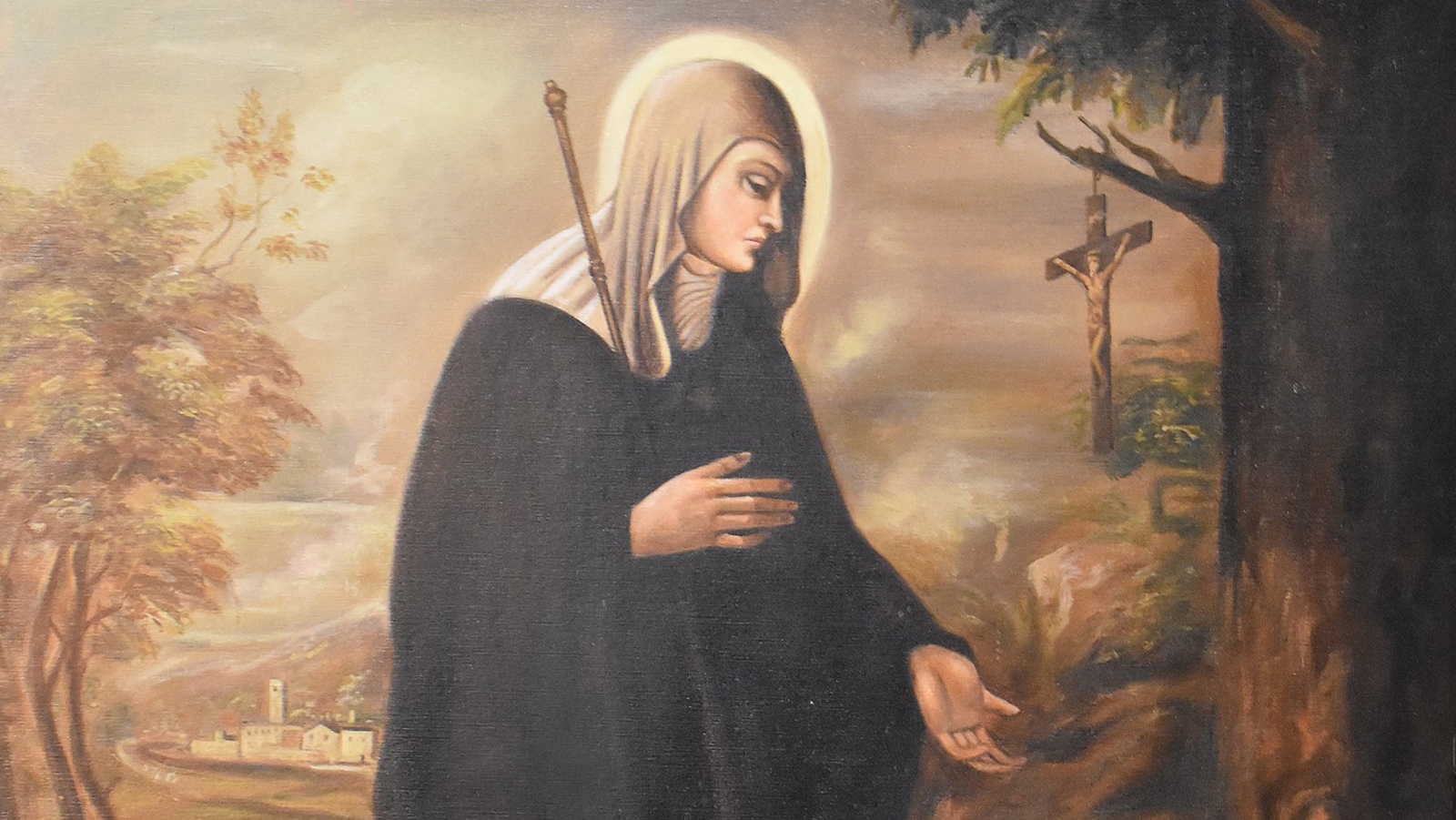

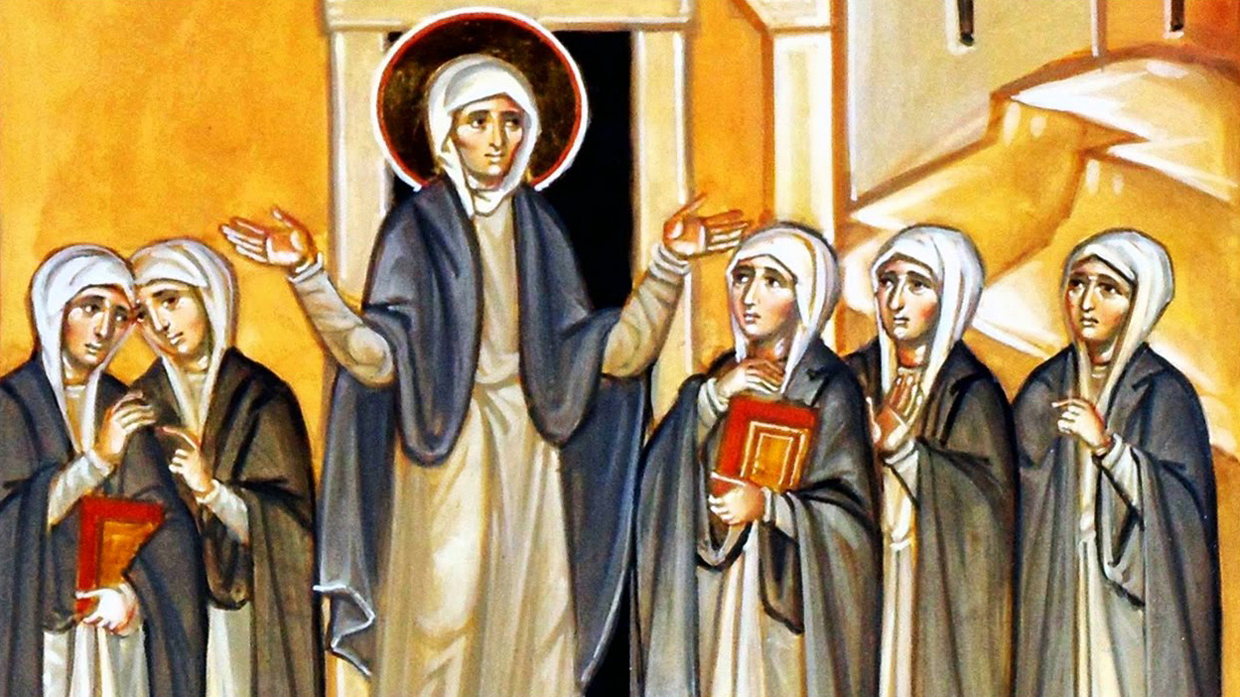
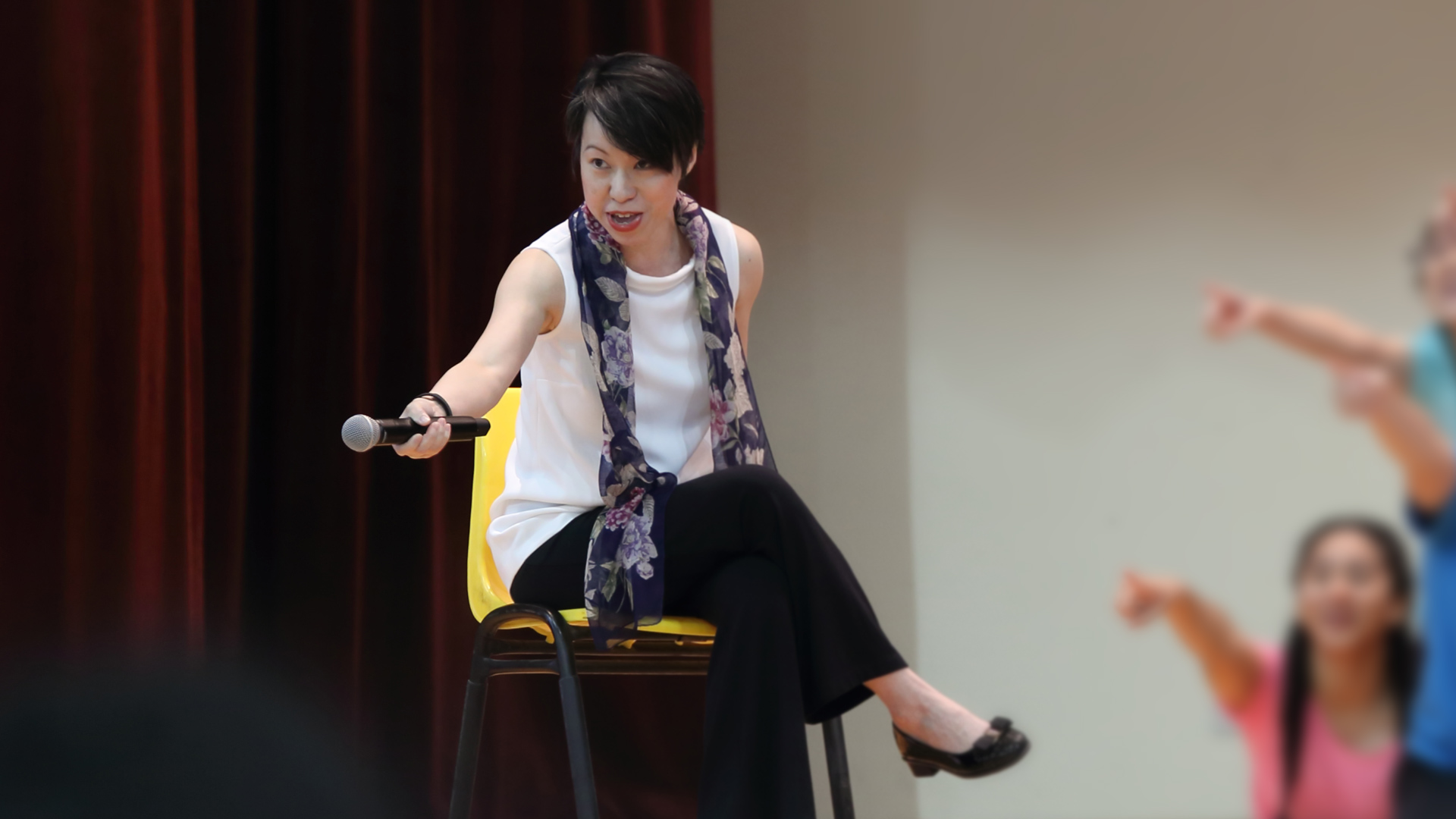

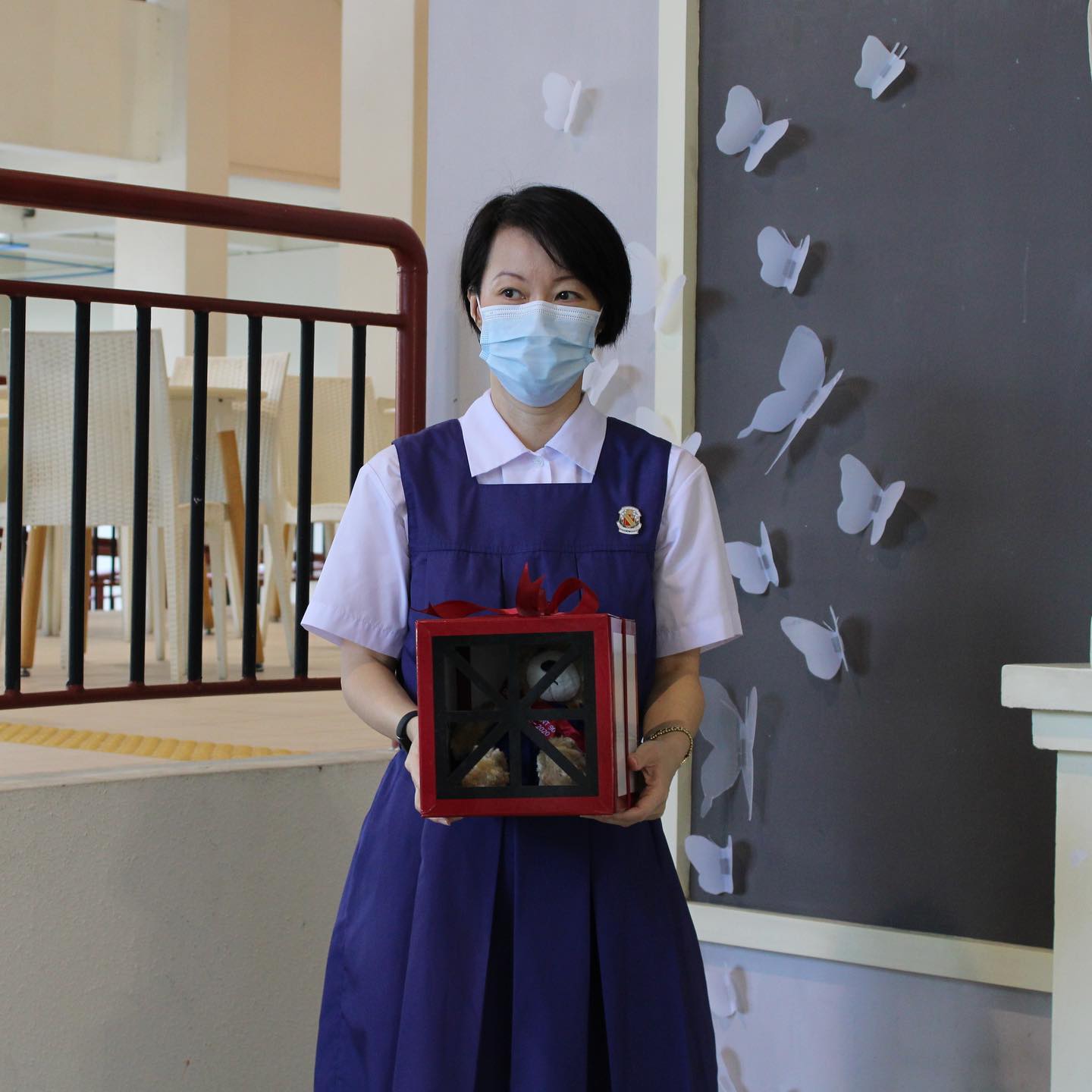



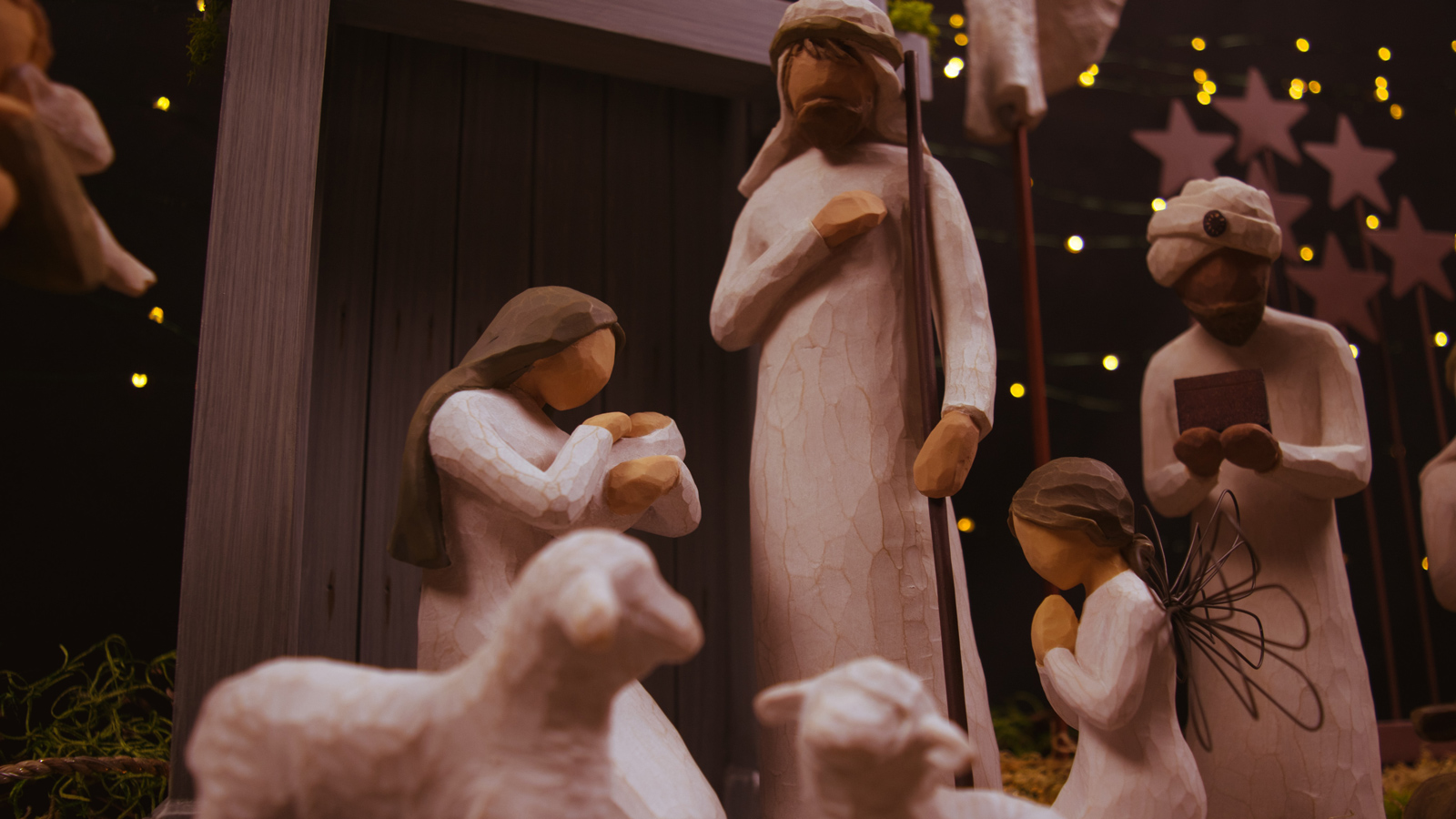




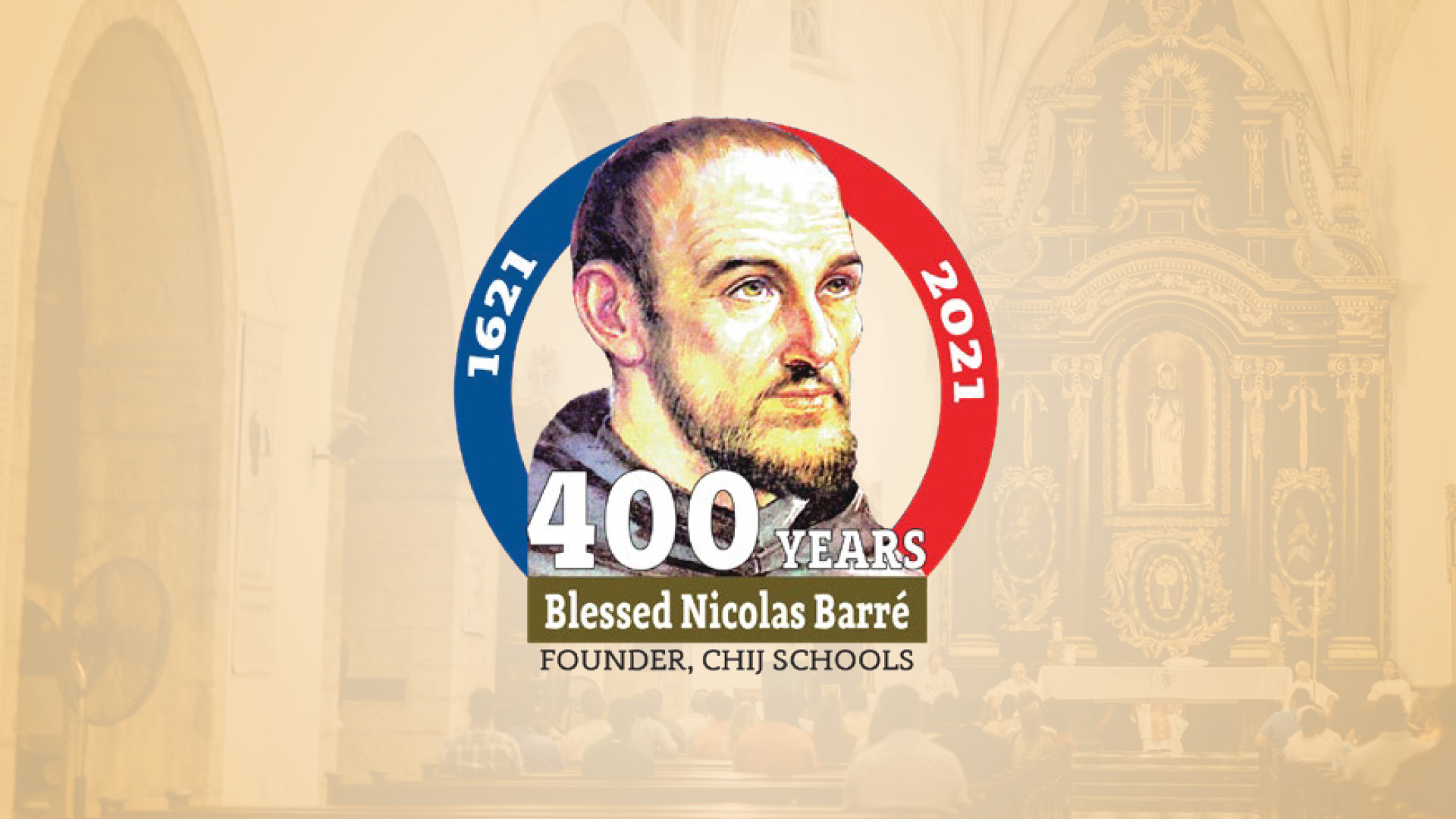
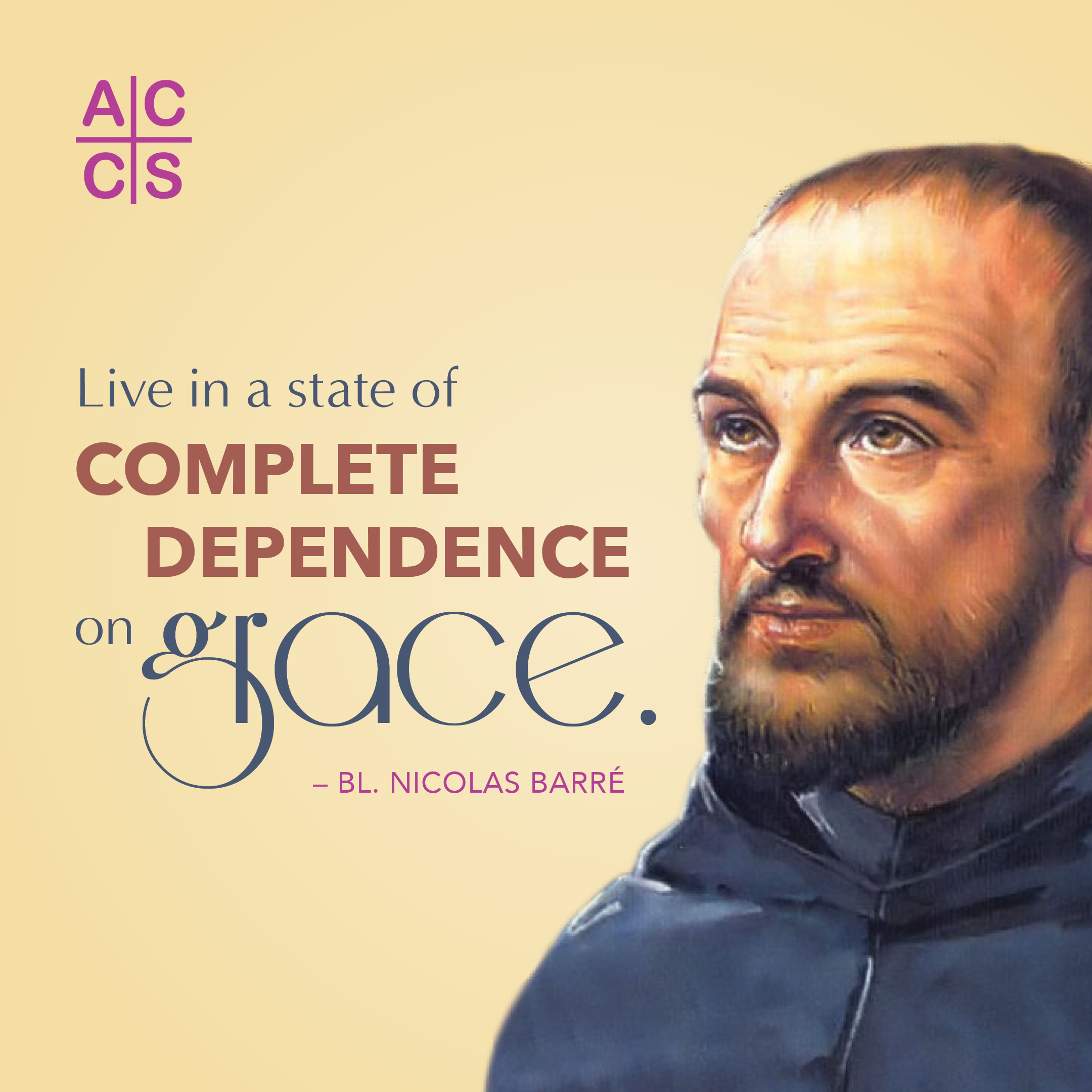 He wrote: “We should live in a state of complete dependence on grace, and however great the gifts and effects it produces, we should always focus on God Who is its source. As to our good deeds, we should remember that it is God Who deigns to act through us.”
He wrote: “We should live in a state of complete dependence on grace, and however great the gifts and effects it produces, we should always focus on God Who is its source. As to our good deeds, we should remember that it is God Who deigns to act through us.”